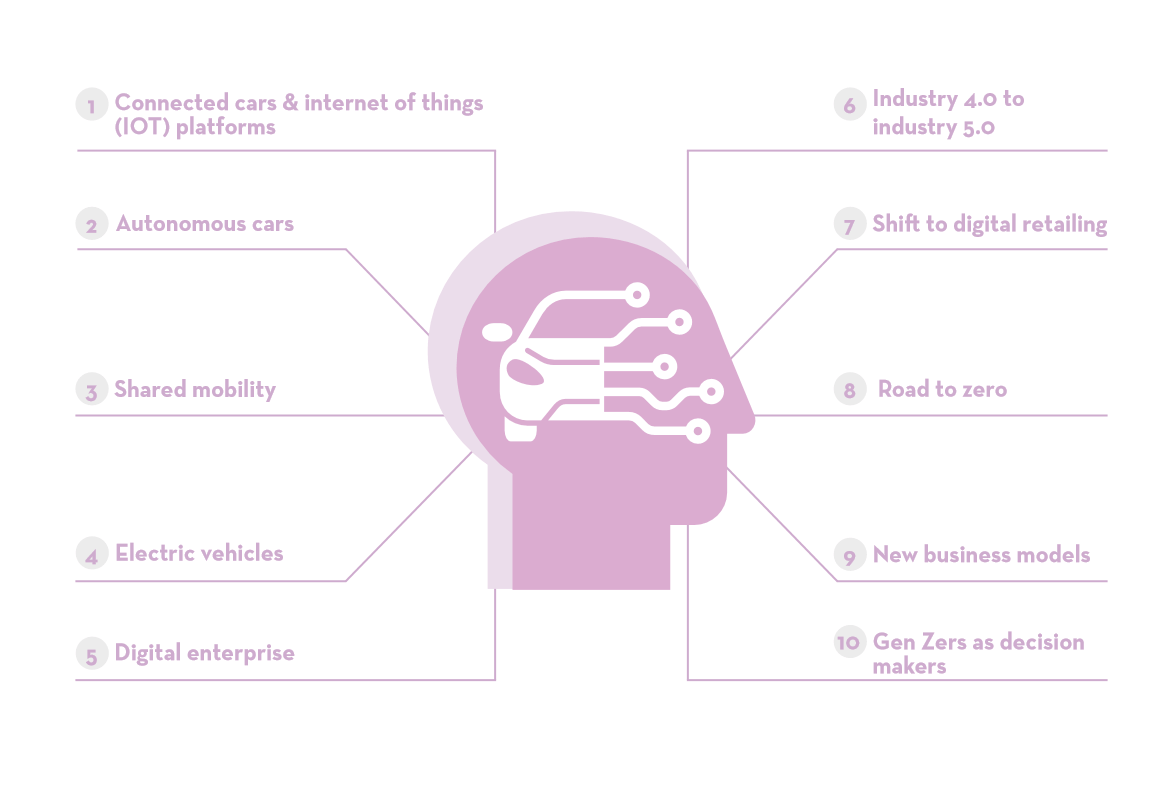From electric vehicles to autonomous cars, the future of the automotive industry will look vastly different from today’s industry. Here are the top trends – and how businesses can future-proof their workforce and talent strategies to keep up based on our latest research.
Future of Talent in the Automotive and Mobility Industry
Flying cars and self-driving vehicles may seem like something out of “Back to the Future,” but that type of technology isn’t so far off in the future anymore. The automotive industry is shifting to more technology-driven and technology-connected platforms, kick starting the next generation of vehicle services.
Massive technology-driven disruption, exacerbated by the COVID-19 pandemic, has accelerated the pace of transformation and shifted talent strategies, according to the latest report from The Adecco Group. As traditional automakers move to embrace new paradigms, it is becoming increasingly clear that building internal resilience and ensuring business continuity requires a deeper, more meaningful and holistic assessment of companies’ talent strategies.

Key trends for the automotive industry:
These are some of the 10 trends laid out in the “Future of Talent in the Automotive & Mobility Industry” report published by the Adecco Group. The report examines the way technology is vastly reshaping the automotive and mobility industry, and the ways in which companies can recalibrate their talent strategy priorities to build a technology-first future.
Download the full Future of Talent in the Automotive and Mobility Industry whitepaper now.

